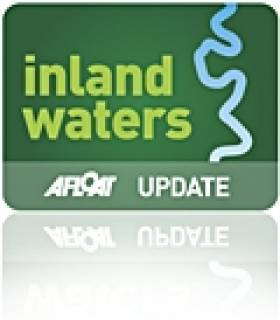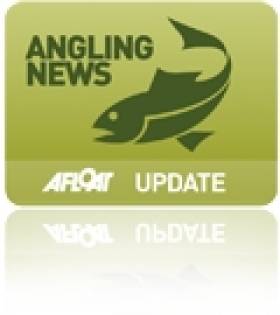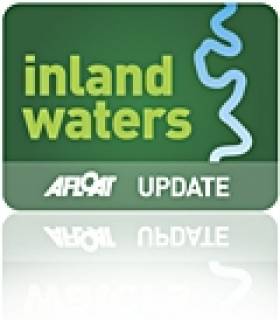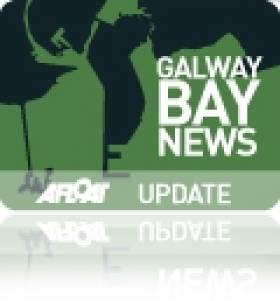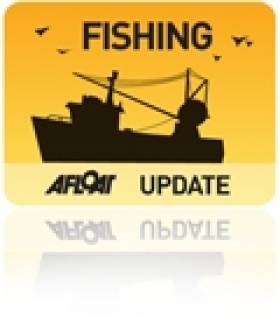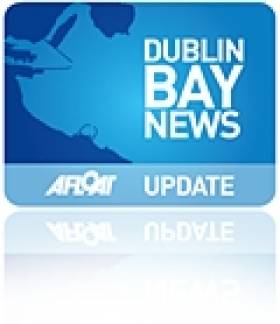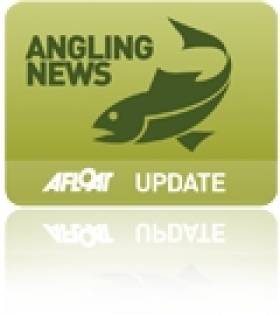Displaying items by tag: consultation
Public Consultation Opens On Disability Action Plan For Inland Waterways
#InlandWaters - Waterways Ireland has opened a public consultation on its draft Disability Action Plan for Ireland's inland waterways.
According to the cross-border body for Ireland's main inland navigations, the draft represents its commitment "to promoting positive attitudes towards people with disabilities and encouraging their participation in public life".
The draft plan is aligned with guidance from the Equality Commission of Northern Ireland in accordance with Section 49A of the Disability Discrimination Act, 1995 (as amended by the Discrimination (NI) Order, 2006).
Waterways Ireland says it hopes to "obtain wide ranging views" on the draft plan and "invite ideas on how best we can develop and promote increased participation opportunities for people with disabilities".
The consultation is open until 2 March 2015. Download the draft plan, and find details on how to participate, on the Waterways Ireland website HERE.
#Flora&Fauna - Inland Fisheries Ireland (IFI) and the National Biodiversity Data Centre (NBDC) have launched a second round of public consultation on its risk assessments on certain non-native species – including a number of marine and waterways species, following the first round in mid-May.
The following risk assessments of various plant species, many of which grow on or close to Ireland's inland waterways, are now available for comment via www.nonnativespecies.ie until Wednesday 6 August 2014:
•Allium triquetrum (Three-cornered Leek)
•Corbicula fluminea (Asian Clam)
•Egeria densa (Large-flowered Waterweed)
•Hydrocotyle ranunculoides (Floating Pennywort)
•Impatiens glandulifera (Himalayan Balsam)
•Ludwigia spp. (Water Primroses)
•Lysichiton americanus (American Skunk-cabbage)
•Myriophyllum aquaticum (Parrot’s Feather)
The following risk assessments will be available for comment shortly:
•Carpobrotus edulis (Hottentot-fig)
•Elodea canadensis (Canadian Pondweed)
•Hippophae rhamnoides (Sea-buckthorn)
•Juncus planifolius (Broad-leaved Rush)
•Hyacinthoides hispanica (including H. non-scripta x H. hispanica) (Spanish Bluebell)
•Persicaria perfoliata (Mile-a-minute Weed)
•Rubus spectabilis (Salmonberry)
Consultation On Draft Angling Byelaws For Rivers Suir, Nore & Slaney
#Angling - Inland Fisheries Ireland (IFI) has given notice of public consultations on draft angling byelaws for the Rivers Suir, Nore and Slaney.
The draft angling byelaw for the River Suir provides for catch and release when angling for salmon (any size) and sea trout (over 40cm) in the main course and including the waters of the Rivers Clodiagh, Lingaun and Blackwater.
It also prohibits the use of worms, prawn, shrimp or any other crustacean or artificial forms thereof as bait and any fish hooks other than single barbless hooks during the period from 17 March to 30 September 2014.
Meanwhile, the draft angling byelaw for the River Nore provides for catch and release when angling for Salmon (any size) and Sea Trout (over 40 cm) during the period from 17 March to 31 May 2014.
This byelaw also provides for the use of single barbless hooks, prohibits the use of worms as bait during this period, and introduces a bag limit of five fish subject to a daily bag limit of one fish during the period rom 1 June to 30 September.
Once the bag limit has been reached it is prohibited to use any fish hooks other than single barbless hooks as well as the use of worms as bait during this period in angling for salmon (any size) and sea trout (over 40cm) in those waters.
Regarding the River Slaney, the relevant draft angling byelaw extends the annual close season in angling for salmon, sea trout and brown trout in the main watercourse and its tributaries from 26 February to 16 March and from 17 September to 30 September.
The byelaw provides for catch and release during the period from 17 March to 16 September in angling for salmon and sea trout. It also provides for the use of artificial fly only with single barbless hook upstream of the old bridge in Enniscorthy, with provision for single barbless hook and a ban on worms as bait downstream of the bridge when angling for salmon or sea trout.
Submissions on all three draft byelaws can be made to IFI Clonmel by email at [email protected] or by post to Inland Fisheries Ireland, Anglesea Street, Clonmel, Co Tipperary. The closing date for receipt of submissions is Wednesday 5 March 2014.
#Oil&Gas - The public consultation on the first stage of environmental assessment for developing an oil and gas licensing framework in Northern Ireland's inland waters continues till next Friday 14 June.
The 'Scoping Report' was issued on 24 April last by Northern Ireland's Department of Enterprise, Trade and Investment (DETI) and marks the first step of the EU-mandated Strategic Environmental Assessment (SEA) process.
The current consultation seeks comments on the appropriateness of the proposed scope of the SEA and the proposed assessment methodology.
Anti-fracking campaigners Good Energies Alliance Ireland (GEAI) argue that any future oil and gas exploration or extraction in Belfast Lough or Larne Lough would include horizontal drilling and franking.
With one week left to go, GEAI is among those urging the public to have their say in the consultation, citing the 1,300 submissions received by the EPA that the group claims it encouraged on a proposed franking research study.
Northern Ireland has four existing petroleum licences across three main areas of exploration in Antrim, Fermanagh and Derry.
Public Consultation on Galway Bay Fish Farm Set to Begin
#GALWAY FISH FARM - Galway Bay FM reports that a full public consultation on proposals for what's set to be Europe's largest fish farm off the Aran Islands is scheduled to begin next week.
As previously reported on Afloat.ie, the 15,000-tonne deep-sea organic salmon farm would be located on a 500-hectare site in Galway Bay off Inis Oírr, and would be one of the largest of its kind in Europe, projected to be worth €103 million annually for the economy.
The statutory consultation period ended earlier this month after delays over the summer in publishing the licence application. And from next Monday 15 October, Bord Iascaigh Mhara (BIM) will make the plan and all statutory feedback available to the public via its website at www.bim.ie.
Advertisements announcing the consultation will appear in local and national newspapers, and packs will also be available to view for locals at Kilronan and Salthill Garda stations, including copies of the environmental impact statements and information on the statutory consultation process.
BIM aquaculture development manager Donal Maguire told Galway Bay FM that transparency is key to ensuring the public had all the information they need regarding the scheme - which has faced opposition from local anglers who fear the fish farm could have a negative impact on wild salmon numbers.
Kerry Harbour Users Say No to Over-Regulation
#IRISH HARBOURS - Protesters took to the water off Kerry's piers last month in an organised swim drawing attention to proposed harbour bylaws designed to regulate the activities of water users.
“We need to make the public aware they have to make submissions,” Denise Collins told The Irish Times from Kells, which hosted one of the largest swims. “Traditional activities such as swimming will be over-regulated, we fear.”
The proposed bylaws would give Kerry County Council greater control over 16 of the county's 57 harbours and piers, including Kells, Kenmare, Portmagee, Brandon and Ventry.
Under the new bylaws, strict regulations would be placed on the use of loudhailers, landing and unloading passengers and freight, waste and even movement around the harbour.
"Draconian" charges are also set to be imposed on fishermen and other harbour users, while campaingers also feel that a ban on swimming and diving could also be added to the list.
The proposed bylaws already suffered a set-back earlier this year when Kerry County Councillors decided to restart the consultation process to allow the fishing industry, tourism operators and other interests more time to make submissions.
According to the Irish Examiner, only two submissions had been received by the council as of its January monthly meeting, despite senior council officials working for months on the draft proposals.
Cllr Toiréasa Ferris commented that the proposed charges in particular "would have huge implications for fishermen, some of whom might currently be earning only between €40 and €50 for a 14-hour day."
As previously reported on Afloat.ie, charges may also soon be hiked on yachts berthing at Ireland's main fishing harbours, a list that includes Dingle in Co Kerry.
Irish Marine Federation chairman David O'Brien expressed concern at the potential for such charges to damage "the good tourism dividend for coastal towns", noting that for every euro spent on a harbour berth, €10 was normally spent in the locality.
Massive Fee Increases Proposed for Harbour Yacht Berths
#IRISH HARBOURS - Yachts berthing at Ireland's main fishing harbours could see their charges hiked by an incredible 800 per cent.
According to The Irish Times, Marine Minister Simon Coveney has announced a mere 21 days for comment and consultation on the draft Fishery Harbour Centres (Rates and Charges) Order 2012. The consultation document is attached to the bottom of this post and available to download as a pdf.
The proposed new charges include an annual fee of €250 per metre for yachts, which could see a 10-metre yacht currently paying €312 a year for a berth shell out as much as €2,500 annually for the same space.
Additional water and electricity costs could even see this bill rise to €3,100 - for berths that come "without proper marina facilities in most cases".
The proposals apply to the State's six fishery centres at Killybegs, Rossaveal, Dingle, Castletownbere, Dunmore East and Howth, only two of which have pontoons suitable for leisure boats.
The Irish Times has more on the story HERE.
Europe's Largest Organic Fish Farm Proposed for Aran Islands
#FISHING - Bord Iascaigh Mhara (BIM) has begun the consultation process for a proposed new deep-sea fish farm in the Aran Islands, The Irish Times reports.
The 15,000-tonne organic salmon farm would be located off Inis Oírr on a 500-hectare site in Galway Bay, and would be one of the largest of its kind in Europe.
Approval of the project could see the creation of 350 direct and 150 indirect jobs, says BIM. It will be owned by the body on behalf of the State but leased to operators on a franchise basis.
The scheme has been welcomed by Comhar Caomhán Inis Oírr, but the island co-op said it was important that a promised €8-million pier for the island is constructed first to provide the necessary infrastructure.
The Irish Times has more on the story HERE.
DCC Rejects Clontarf Flood Defence Plan
#DUBLIN BAY NEWS - Dublin City Councillors have unanimously rejected controversial plans for flood defences in Clontarf.
As previously reported on Afloat.ie, councillors were set to vote last night on whether to give the green light to the scheme, which has faced strong opposition from local residents and business owners.
The flood barrier would have involved the construction of mounds or walls up to and above 7ft high along the Clontarf promenade.
However, following a vote last night, a redesigned proposal was rejected by the council, with officials admitting to The Irish Times that the public consultation process "didn't work".
Labour councillor Jane Horgan Jones said that it was now up to council officials and the local community to develop an acceptable plan to protect Clontarf from flooding in the future.
"However this is done, it must not be at the cost of destroying a beautiful, free and natural amenity that has been used by generations of Dubliners, from within and outside Clontarf, for many years,” she said.
The Irish Times has more on the story HERE.
#ANGLING - The 30-day public consultation on new regulations for the management of the 2012 wild salmon and sea trout fishery will expire next Thursday, The Irish Times reports.
The new regulations are based on advice from Inland Fisheries Ireland following an assessment of 141 rivers nationwide by the Salmon Standing Scientific Committee.
That assessment recommended that that 43 rivers should open (seven fewer than in 2011); 34 rivers should open for catch-and-release (six more than 2011); and 64 rivers should be closed (one fewer than 2011).
New conservation rules include bag limit for sea trout and a restriction on angling for other species when fishing for salmon on closed rivers.
The Irish Times has more on the story HERE.



























